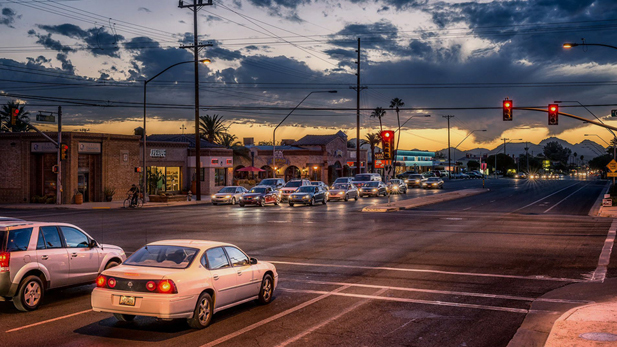The city of Tucson is celebrating its gold medal-winning Complete Streets policy aimed at a more equitable transportation network after not having won a medal in the category a year earlier.
The city adopted Complete Streets nine months ago In naming it as an award recipient, CityHealth praised Tucson's policy as one that “explicitly accommodates all ages and all abilities.”
CityHealth officials further lauded Tucson’s new policy as an “investment for the city’s future” and in handing out the award also considered such policies that could positively impact the health of residents as raising the tobacco purchasing age to 21 and earned sick leave policy. In composing the report, CityHealth analyzed the policies of the 40 largest cities in the country.
“If you make streets safe, it means that people start walking on them, and they start biking on them and they don’t go everywhere in a car,” CityHealth vice president of communications Liz Voyles told Tucson.com. “If you start building streets that accommodate different modes of transportation, people start to use different modes of transportation. If you start to make the healthy choice easier for people, they start to get more physical activity in the case of the complete streets.”
It’s been two years since the Tucson Department of Transportation and the Living Streets Alliance started working toward the common goal of creating policy to help focus on infrastructure projects leading to a transportation network that equally serves all of its residents.
Part of the policy includes figuring out ways to make the most of all space available and ensuring that it accommodates as many people as possible. The plan has always called for having an eye on protecting the most vulnerable.
“When you think about older people or younger people who don’t have the ability to drive, that makes up a huge group that needs other transportation options to be able to access schools and jobs and recreational opportunities or social opportunities,” said Living Streets’ Evren Sonmez, who helped develop the policy. “Then the policy also specifically calls for paying attention to communities of color, low-income communities and also neighborhoods where there’s a concentration of households without access to vehicles.”
Complete Streets coordinator Patrick Hartley says the shift in focus stands to pay huge dividends.
“You create more business of people walking into businesses that maybe historically they would’ve just driven right by because they’re going from A to B,” he said. “Now that street can be a destination in and of its self. So that’s an attractor and a draw for residents so that they’re comfortable walking down the street and they can pop in into places they wouldn’t have gone previously.”





 Alerts Sign-up
Alerts Sign-up